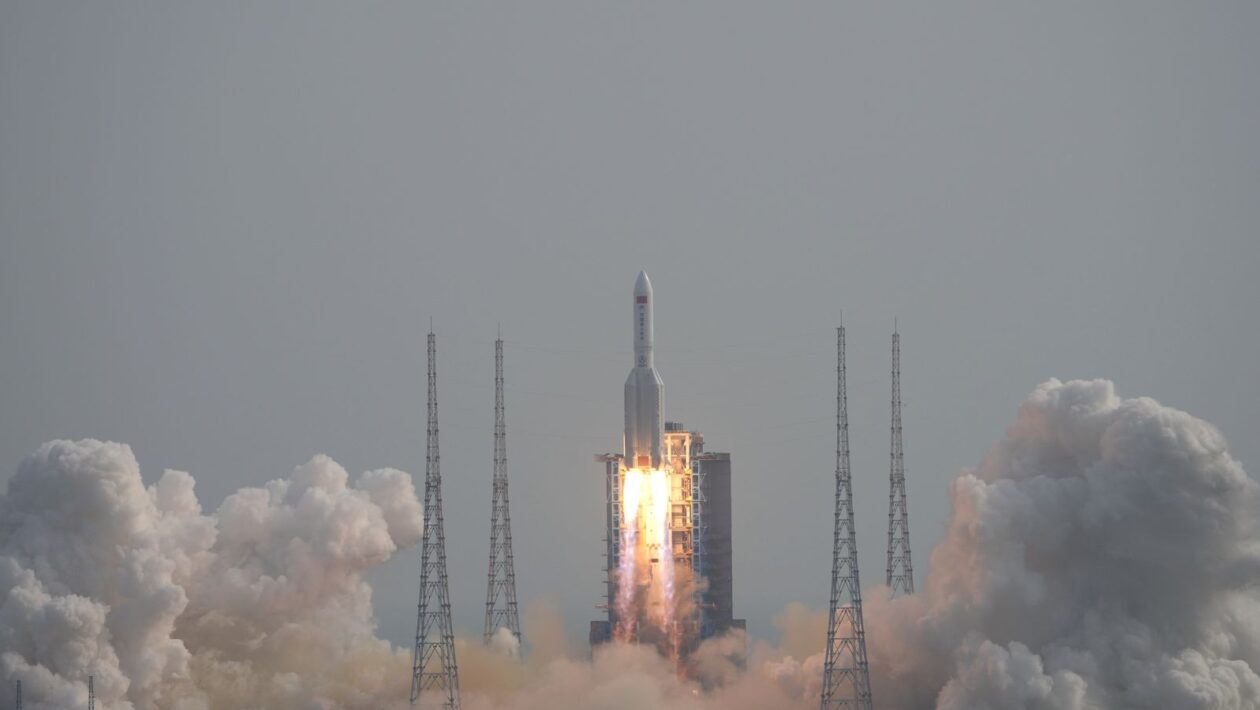[ad_1]
Debris from a powerful Chinese rocket returning from space forced Spain to close part of its airspace.
A no-fly zone was briefly imposed in the northeastern region of Catalonia and three other areas as remnants of the Long March 5B (CZ-5B) were due to pass over.
The rocket blasted off on 31 October from southern China to deliver the last module of the country’s space station, which is currently under construction.
As gravity pulled the projectile back to Earth, most of it was expected to burn up on re-entry, but there were concerns significant fragments may survive.
The European Union Space Surveillance and Tracking service (EUSST) said the debris would most probably re-enter the atmosphere in the middle of the Atlantic and would likely land in the sea.
But it also warned that northern Spain and Portugal and southern Italy were also within the potential trajectory of the rocket.
Emergency officials in Catalonia said on Twitter: “Due to the risk associated with the passage of the space object CZ-5B through the Spanish airspace, flights have been totally restricted from 09:38am to 10:18am in Catalonia and other communities.”
The EUSST said: “The statistical probability of an impact on the ground in populated areas is low.
“These predictions however come with uncertainties, and a better estimation will only be possible close to the re-entry.”
It was the fourth flight of the Long March 5B rocket since its maiden launch in May 2020.
On its first deployment, fragments of the rocket landed on the Ivory Coast, damaging several buildings in the West African nation, although no injuries were reported.
Debris from the second flight landed harmlessly in the Indian Ocean, while remnants from the third fell into the sea in the Philippines.
The rocket’s re-entry into the atmosphere is a common international practice, Zhao Lijian, a spokesman at the Chinese foreign ministry, said at a briefing when asked if China had taken measures to reduce the risks.
He said the rocket was designed so most of its components would be destroyed on re-entry and “the probability of causing harm to aviation activities and the ground is extremely low”.
[ad_2]


